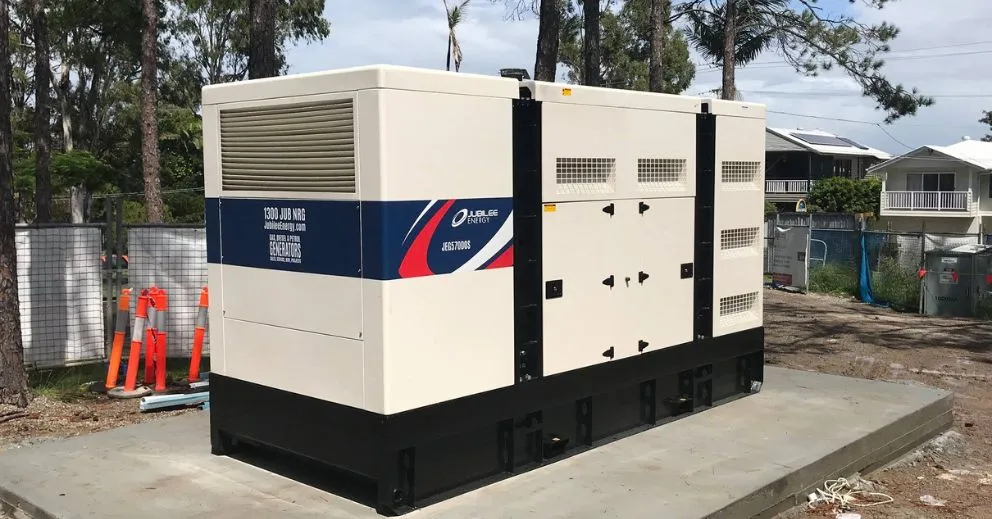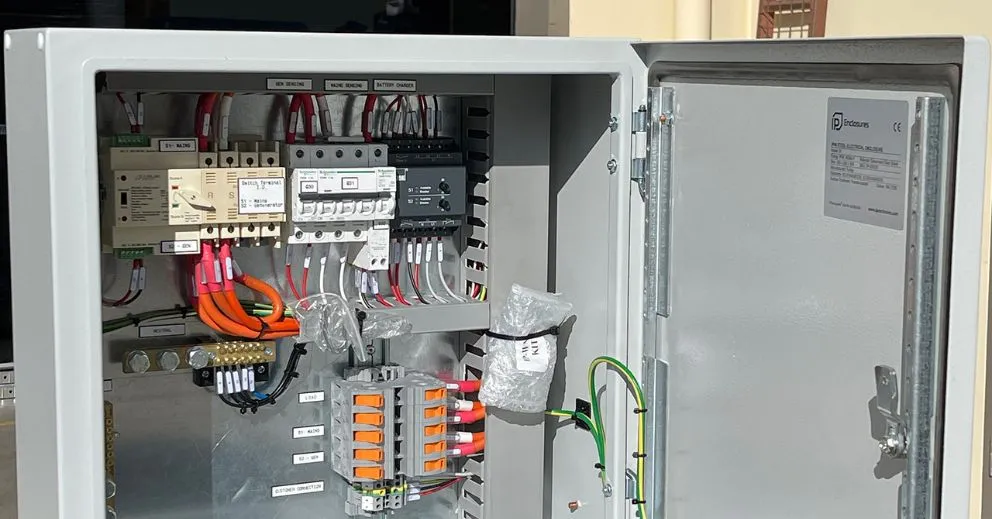Gas powered generators are a popular choice for homeowners, businesses, and event organisers needing a reliable source of backup or off-grid power. Known for their convenience and relatively clean performance, they’re especially favoured for lighter-duty or temporary use.
But like any energy solution, gas generators come with their own set of pros and cons. In this blog, we’ll explore the advantages and drawbacks to help you decide if a gas powered generator is the right choice for your needs.
Pros of Gas Powered Generators
Convenient Fuel Availability
One of the biggest benefits of gas generators is how easy it is to source fuel. Whether your unit runs on natural gas, or LPG, these fuels are widely available across Brisbane and Australia, making refuelling quick and simple.
Lower Upfront Cost
Gas powered generators generally come with a lower price tag compared to diesel models. For homeowners or small businesses who need an affordable backup solution, this can be a major selling point.
Quieter Operation
Compared to diesel generators, gas generators tend to produce less noise, especially when fitted with modern sound-reducing technology. This makes them a great option for residential areas, events, or locations where noise levels are a concern.
Cleaner Emissions
Gas burns cleaner than diesel or petrol, resulting in fewer emissions. This makes gas powered generators a more environmentally friendly option, particularly when running on natural gas or LPG.
Easy to Use
Most gas powered generators are user-friendly, with straightforward startup processes and simple control panels. For people without technical experience, this ease of use is a huge plus.
Cons of Gas Powered Generators
Lower Fuel Efficiency
Compared to diesel generators, gas models tend to be less fuel efficient. This means that for longer or more demanding use, they may consume more fuel and result in higher running costs over time.
Not Ideal for Heavy Loads
Gas generators are perfect for light to medium power requirements, but they may not handle large industrial loads or extended usage as well as diesel generators. If you’re running heavy machinery or require long hours of continuous power, gas might not be the best choice.
More Frequent Maintenance
While gas burns cleaner, the engines in gas powered generators often require more frequent maintenance, particularly if they’re being used regularly. This includes checking spark plugs, fuel lines, and ensuring the engine stays in good working order.
Fuel Storage Limitations
Storing petrol or LPG safely can be tricky, especially in hot Australian climates. Petrol is volatile and has a shorter shelf life, while LPG requires special storage tanks. Natural gas generators avoid this issue but require a connection to a mains gas supply.
Potential Availability Issues in Remote Areas
While gas is easy to find in cities and suburbs, it may not be as accessible in remote or off-grid areas. Diesel, in contrast, is often easier to transport and store in large quantities for remote operations.
Should You Choose a Gas Powered Generator?
Gas powered generators are a fantastic choice if:
- You need a backup power source for your home or small business.
- You value lower upfront costs and quieter operation.
- Your power requirements are moderate.
- You have easy access to petrol, natural gas, or LPG.
However, if you need long-term, heavy-duty power or are in a remote location, a diesel generator might be more suitable.
Get Expert Advice from Jubilee Energy
Not sure if a gas powered generator is right for you? At Jubilee Energy, we offer expert guidance to help you find the perfect generator for your home, business, or project. Whether you’re buying for the first time or upgrading your current setup, our friendly team is here to make the process easy.
Contact Jubilee Energy today to learn more about our range of gas generators and find the best power solution for your needs.
More insights from us
Discover the latest in power generation technology.





